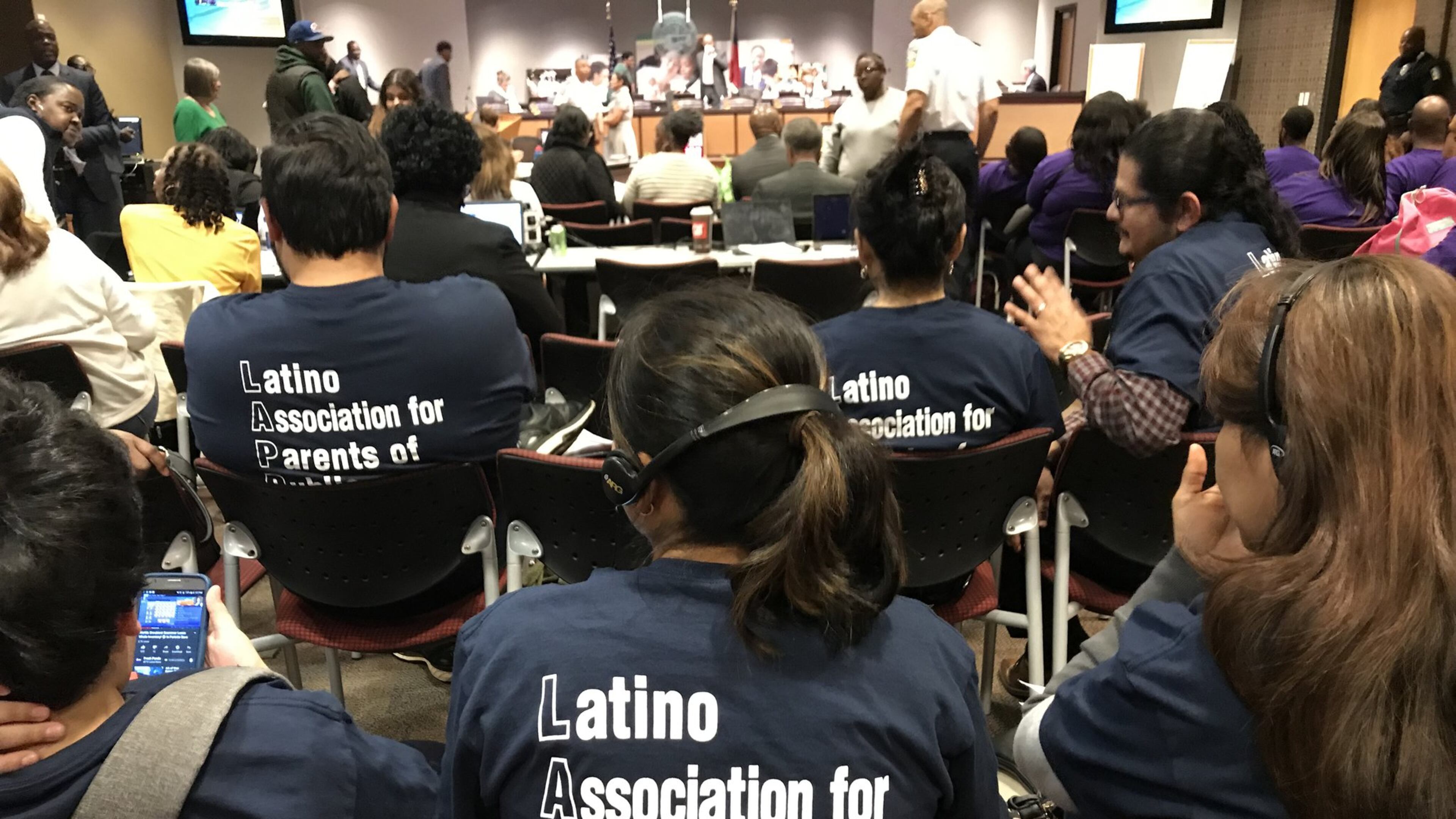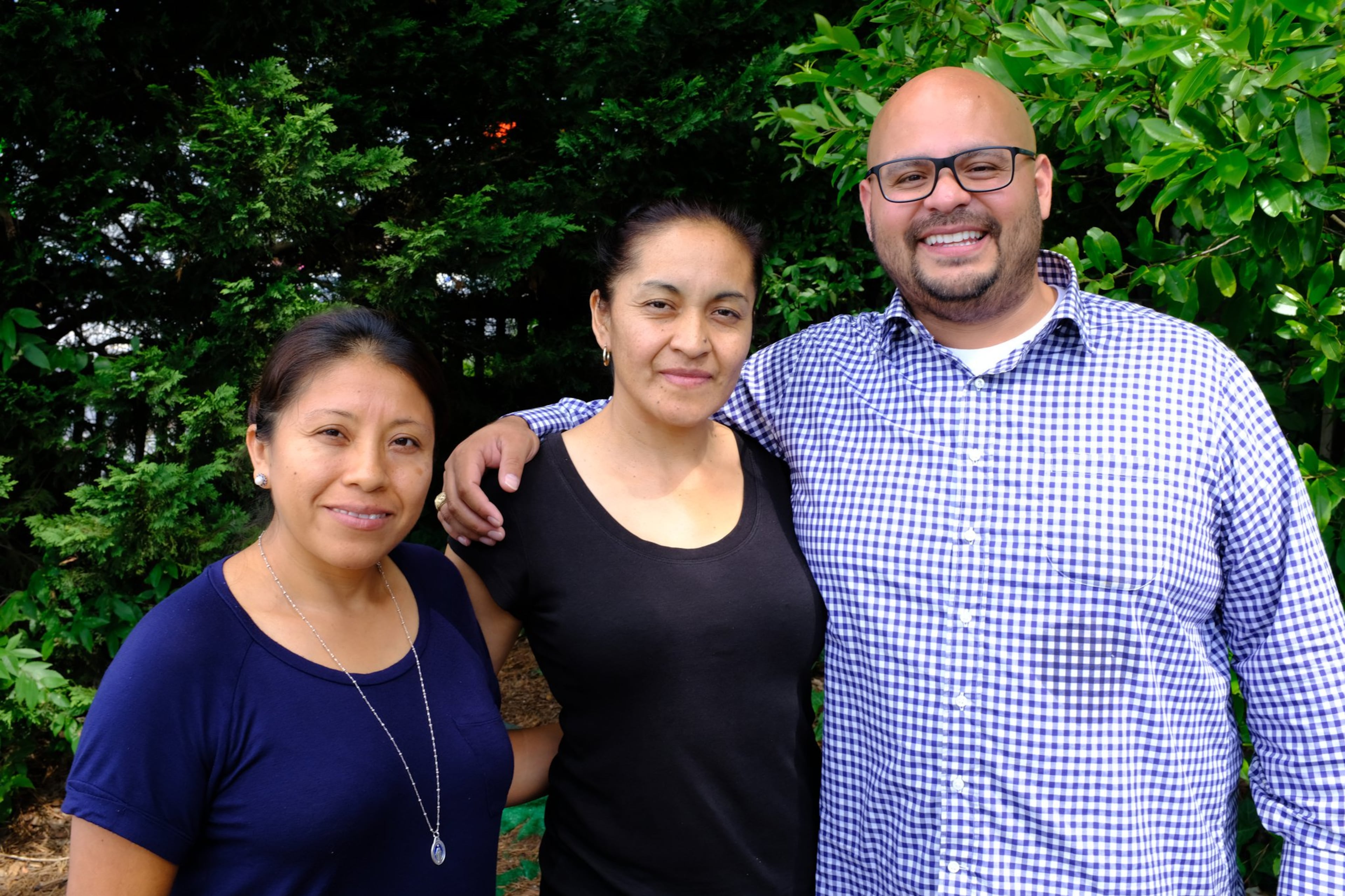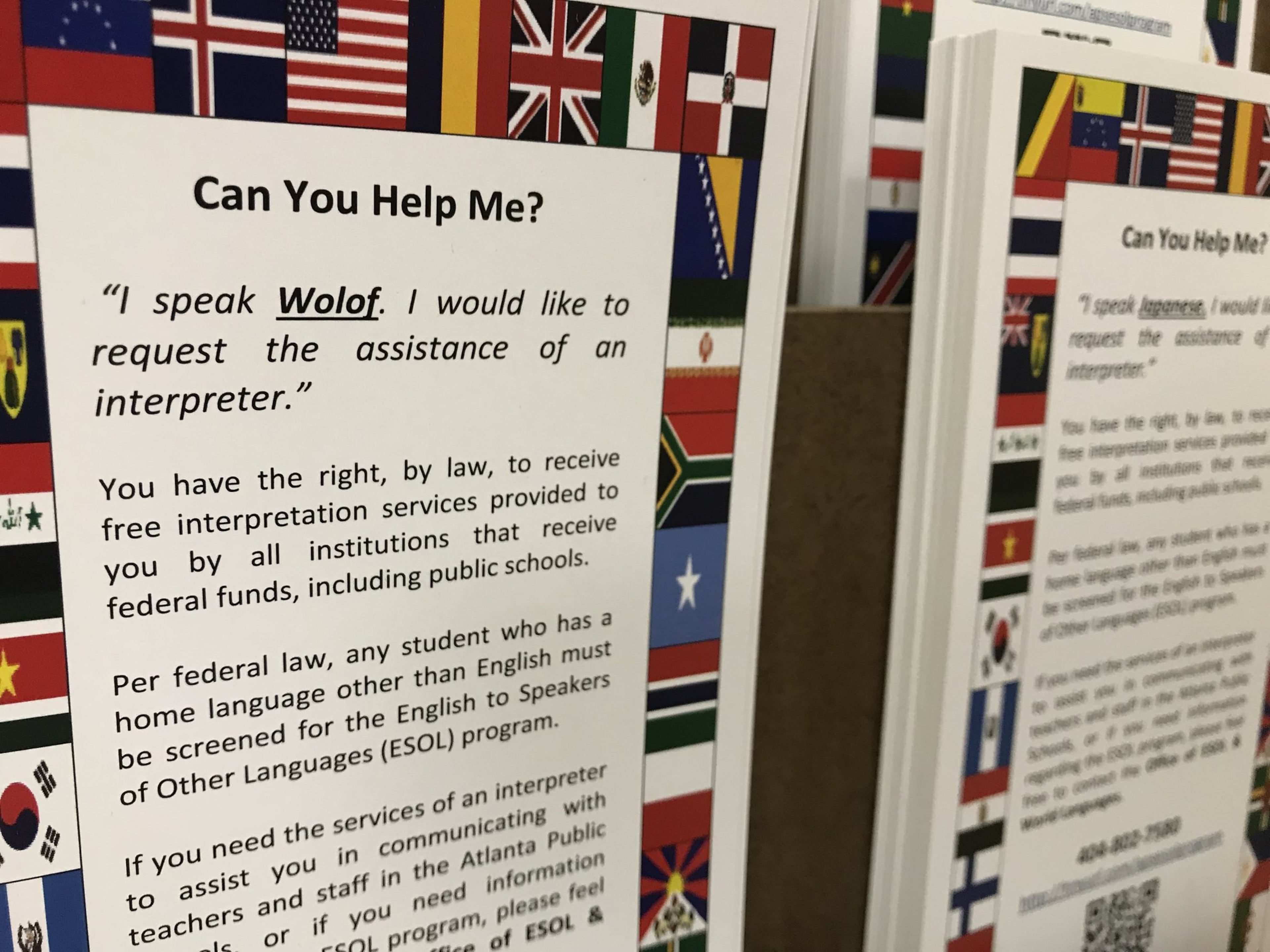Atlanta schools try to make language less of a barrier for parents

Amid a push from Spanish-speaking parents, Atlanta Public Schools is emphasizing and expanding translation and interpretation services.
The district plans to spend $191,203 more this year to hire additional full-time staff members and pay for more assistance for families who don't speak English. In August, the board will vote on a new language access policy, among the first in metro Atlanta, that requires staff training and directs the district to provide language services.
VIDEO: MORE ON APS
Federal laws already require school districts to assist non-English speaking families, and APS as well as other metro districts currently offer help ranging from interpreters for parent-teacher conferences to the translation of key documents.
Beginning this school year, the state will require all districts to ask parents during the enrollment and registration process what language they prefer to receive school information in.
APS’ increased focus comes as the number of students and parents who speak different languages grows and as advocates call for the district to pay more attention and devote more resources to the work.
“One of the most important things that we need to do is involve our parents in the school system,” said Angelica Martinez, an APS mother and vice president of Latino Association for Parents of Public Schools. “We feel like we are not welcome.”

LAPPS, which formed three years ago and has chapters in four Atlanta elementary schools, has become a visible and vocal advocate for Spanish-speaking parents and children. Many of its 30 members have shown up for board meetings demanding the district do a better job of communicating with those who don’t speak English.
The number of Atlanta students learning English has grown by nearly 14% since 2014 to 2,538 students last school year.
About 7% of APS’ 52,000 students live in a home where the language spoken is not English. Of those, nearly four out of five speak Spanish, followed by Chinese, French, Arabic and Portuguese.
From June 2018 through May 2019, the district's Office of English to Speakers of Other Languages and World Languages responded to more than 3,600 requests for interpretation and translation services submitted through an online system. A handful of years ago, the district handled about 1,000 requests, said program coordinator Margaret McKenzie.
The language issue came to the forefront last school year when district officials held community meetings about a plan to improve schools and ensure equity for all students. Some Spanish-speaking parents pointed out it wasn't very equitable that they couldn't fully participate in those conversations because materials hadn't been translated.
In the months that followed, the district began translating some, though not all, documents and presentations for monthly board meetings into Spanish. Board members also began working on a language access policy.

“We are doing much of this already in some schools, but the board wanted to make it clear that we expect every school and every department to be aware that not all of our families share a common language,” said Cynthia Briscoe Brown, who leads the policy committee. “We want to go broader and deeper than the minimum the law requires because we really do see this as a family engagement issue, and we need to provide these services because we want every one of our families to be able to engage with the system and with their children’s education.”
The proposed policy calls for “critical district documents” to be translated into the top five languages. APS already translates some documents — such as enrollment forms and health information — in up to eight languages.
With approval of the policy, APS would develop a language plan and determine which additional documents should be translated, McKenzie said.
“We are responding to our community, and our community has spoken,” she said. “We do care (about) our community even if we speak a different language. We care what you think.”

Martinez would prefer to communicate and receive school information in Spanish to avoid misunderstandings. She said when Spanish-speaking parents show up at schools and nobody is there to translate it makes them feel like an inconvenience and causes those families to stay back.
Karla Cuyan, a parent of former APS students and president of the Latino parents group, said while the district does offer some interpretation services, it’s often a last-minute response. She said there needs to be a better process for families to get the services they need.
The district should translate students’ state standardized test results as well as provide a class on how to understand them, she said. Getting APS to send transportation updates in Spanish on bus delays or changes is also a struggle.
Atlanta’s proposed language policy is a good start, LAPPS members said, but the district must follow through. That means not just communicating with Spanish-speaking parents, but including everyone in decision-making.
Besides language barriers, cultural differences also make it challenging for parents who aren’t used to the American educational system.
“It is the first step, and it’s the right first step, but it’s the first step of a lot of steps,” said LAPPS board member Ricardo Miguel Martinez. “You answered the door when we knocked on it.”
Atlanta Public Schools English learners
The number of students in the English learner program has grown by nearly 14 percent in recent years.
2014: 2,232 students
2015: 2,328 students
2016: 2,290 students
2017: 2,386 students
2018: 2,528 students
2019: 2,538 students
Source: Atlanta Public Schools
2018 top languages in Georgia’s public schools
Number of students whose primary language is not English
Spanish: 135,188
English, other than Standard American: 5,311†
Vietnamese: 4,553
Other Indian: 3,850*
Korean: 3,410
Chinese: 3,191
Arabic: 2,581
Other Asian: 2,456**
Other African: 2,277***
Portuguese: 2,237
†The English spoken in some French and British islands (former colonies) could be considered a pidgin form of English, and therefore, non-standard.
*Other Indian includes Bhili, Kannada, Kashmiri, Konkani, Malayalam, Marathi, Meitei, Mizo, Odia, Tamil, Tedim Chin, Telugu, Zo, Zomi and Zotung.
**Other Asian includes Kosraean, Kyrgyz, Lai, Mokilese, Norfolk, Pohnpeian, Rohingya, Sinhala, Tahitian and Visaya.
***Other African includes Bariba, Bassa, Mandingo, Mende, Nuer and Sango.
Source: Georgia Department of Education


